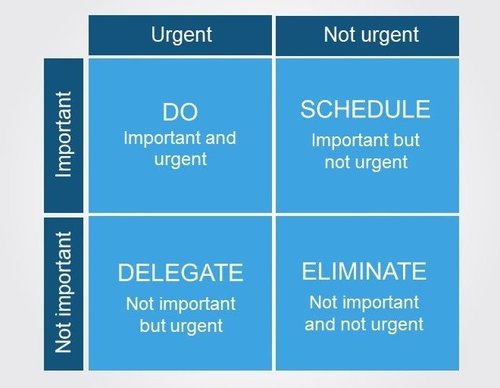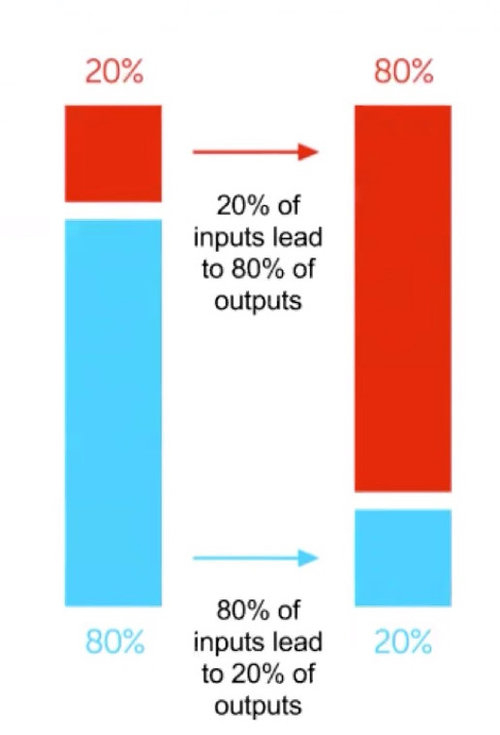Why Are You So Busy Doing Business With Yourself?
It kills me when I meet rural companies that are visibly under-performing in sales yet still retain such an inwardly focussed vision. They focus on operations, they focus on finance, they focus on structures and org charts or value chains whilst failing to focus on the two things that are the lifeblood and priority of their rural business: sales and marketing.
I get all businesses are busy and functions of business are important yet without effective marketing you don’t have a new pipeline of leads. And without converting those leads you get no sales (having the right product is another story for another day and blog).
When rural businesses complain about declining sales and share they are usually looking for excuses outside their business:
“It’s the economy/schedule price/competition/weather/lack of decent talent/currency rates” *
(* delete as appropriate)
The problem is they should be focussing their efforts and energies on what they can control, rather than what they can’t, just like good farmers do.
CONTROL THE CONTROLLABLES
There are many things that you can control like:
- understanding the mindset and motivations of your customers better than anyone else (do your homework, spend time with them observing them and asking them intelligent qualitative questions that give you a greater, deeper insight into their hopes, fears and dreams so your marketing messages are more meaningful to them)
- creating generous, unique content that encourages people to connect with you (using “me not we” language, serving them before selling to them, using the power of reciprocation by being of value and service)
- invest in training and developing your people to make them the best they can be (understanding their current capabilities and what they want to learn and master most, working with qualified providers who can bring independence and objective eyes)
- concentrating on where your best and most profitable customers are (so you can create profiles and personas to find look-a-likes that are like them)
- creating a winning culture and team that attracts the very best talent (by becoming a place where talent wants to work)
“THE BEST WORK WITH THE BEST”
If you can’t attract good sales and marketing talent to work for you to get the results you need, you need to look at your culture, your team and your behaviours. Do you have inspiring leaders who empower or micro managers who meddle? Do you have a great brand that people are drawn to? Do you have a runway that leads to greater career progression?
Your employees should be walking talking advocates for your company, not active detractors. Gallup Research consistently reports in its annual global survey that over 70% are disengaged with their work. That means 7 in 10 of your employees are just turning up for the pay check, whilst the other 3 are responsible for most of your success.
We all know the correlation between highly engaged staff and highly engaged customers.
What is you focussed your time on those that are most engaged and eliminated those that weren’t?
WHERE YOU SPEND YOUR TIME TELLS ME YOUR PRIORITY
We do a lot of research using time diaries with clients. People will often tell you what their priorities are but time tells us where their priorities really are.
It’s not what they say, it’s what they do that signals their true intent.
So can you guess how much time most rural companies denote to sales and marketing?
50%? 40% 30%? The average answer is 15%.
What are they doing with the other 85% of their time? Too often they are busy doing something else that doesn’t drive sales or generate leads, or what I like to phrase as “too busy doing business with themselves”.
Here are a few of the most obvious culprits when it comes to busting “busyness”:
1. MEETINGS AND MANAGERS
In his brilliant book ReWork Jason Fried affectionately refers to meetings and managers as “M&Ms” as the two biggest time wasters in the modern business world.
If you’re employees are self-managing you don’t need the same layer of management. If people are empowered, inspired and motivated to be and bring their best selves to work they and the business they work for will prosper.
Meetings and managers have a disproportionate influence on time yet often a disproportionate disaffect on income. I rarely meet managers who are producing income for the business.
“Too many Chiefs, not enough Indians” as they say.
Jack Welch talks about “taking the jumper off” so you can feel the heat. Layers of managers.
Layers are like sweaters. they insulate you from what the real temperature is.
Jack Welch
Is your management layer insulating you from the truth? No one wants surprises so keep close to the action.
2. THE TYRANNY OF THE URGENT VS THE PRIORITY OF THE IMPORTANT
This was a sage piece of advice I got from one of my mentors Chuck Blakeman.
He defined urgent as something that makes you money today but not tomorrow. Important was defined as things like productising services, freedom mapping processes and marketing. Activities that din’t make you money today but would make you money for many more tomorrows.
The Eisenhower Matrix is a great tool to help you here:

3. MISTAKING ENTHUSIASM FOR EFFECTIVENESS
Being busy isn’t the same as being effective. Being busy isn’t a social status. It’s a human badge that afflicts us all.
The question I always ask those that I advice is simple:
“Are you busy working on the right stuff or the wrong stuff?”
If you don’t know what the goals and outcomes of the business are, how do you know? Do your activities and efforts align with the business objective? How does this get measured?
When the business strategy is well known and communicated, it has a far greater chance of being understood because everyone is clear on the commercial context.
4. DISMISSING THE ROLE OF SALES
Without sales businesses don’t survive.
Whilst many are derogatory and dismissive about sales people and the sales profession in general, they forget these same people pay the bills of everyone else. Finance teams do not make sales. HR teams don’t make sales. Sales teams make sales.
Sales are essential to business success. Yet so many don’t invest enough time honing their craft:
- what are the questions we need to ask our clients to understand their needs better?
- are our proposals professional and personalised enough?
- do we know what they want?
Sales is a profession so be a professional and learn this stuff. Practice always makes perfect.
5. MARKETING IN MEDIOCRITY
Marketing works for sales by providing qualified leads that can be converted into a sale. Some would argue the best marketing doesn’t need sales as the customers convert themselves.
“The aim of marketing is to make selling superfluous.”
Peter Drucker
However, on the whole, the majority of rural marketing is mediocre and under-done. It’s mostly predictable, traditional and self-serving. It never goes deep enough and only deals with the surface issues. Problem is so does everybody else (think fence-leaning farmer testimonials).
Very few rural firms take the time to properly understand the pain points and pressures their customers face. They assume they know without knowing they know.
When you do a deep dive with customers you get inside their world. You understand the words and language they use.
When you do this you stand a far better chance of connecting and converting your customer from leads into sales.
A SOLUTION: THE 80/20 EFFECT
The Pareto 80/20 rule is a great mental model to break through the affliction of busyness. As another mentor of mine, Michael Simmons says:
“A minority of inputs leads to a majority of outputs, a minority of causes create a majority of effects and a minority of efforts leads to a majority of results.”
Not all activities are equal. Same goes for employees. What you’re focussing on now might be better spent elsewhere to get biggest bang for buck.
If you have a under-performing employee should you spend your time there or should you instead spend making someone who’s good great? This is where the 80/20 rule kicks in because a small amount of time can have a disproportionate amount of outcome.

So here’s my challenge to all you rural business owners:
What are the 20% of things you can do now to get 80% of the outcomes for your rural business?
Hint: you could always start by focussing more on your sales and marketing.
+++
I hope these ideas and insights are useful. What have we missed? What are the systems and strategies rural business owners use to ensure they and their teams keep their “eyes on the prize”?
My mission is to champion life-long learning amongst rural sales and marketing professionals using education-based content so we can purge our world of heinous crimes like paid advertising, online surveys and Google AdWords.
Thanks for reading this. If you enjoyed this article, please help and the time I spend researching and writing them by Sharing this with your network and Follow me so you don’t miss out on any of my many articles.





